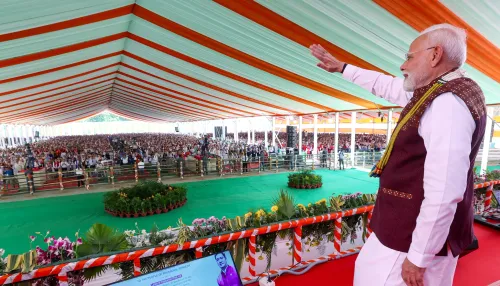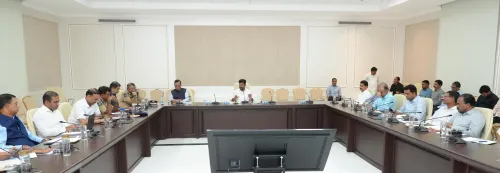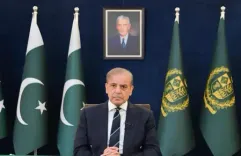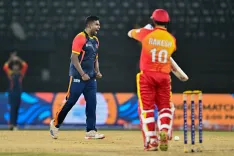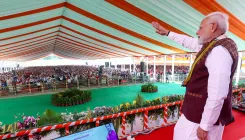Will the Supreme Court Ensure Transparency in the Air India Crash Investigation?
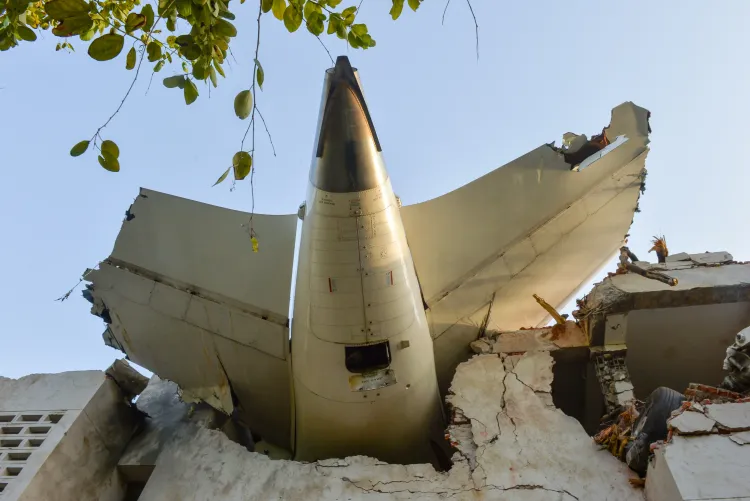
Synopsis
Key Takeaways
- The Supreme Court is assessing the fairness of the Air India crash investigation.
- Allegations of incomplete information disclosure by authorities have surfaced.
- Key technical issues were overlooked in the preliminary report.
- The investigation's integrity is questioned due to potential conflicts of interest.
- Public transparency in aviation investigations is essential for accountability.
New Delhi, Sep 22 (NationPress) The Supreme Court has decided to look into whether the current investigation regarding the June 12 Air India plane crash in Ahmedabad, which resulted in the loss of over 260 lives, adheres to principles of fairness, transparency, and independence.
A bench comprising Justices Surya Kant and N Kotiswar Singh has issued a notice to the Union Ministry of Civil Aviation, the Aircraft Accident Investigation Bureau (AAIB), and the Directorate General of Civil Aviation (DGCA) concerning a public interest litigation (PIL) submitted by the NGO Safety Matters Foundation.
"Issue notice to the respondents for the limited purpose of ensuring a free, fair, impartial, independent and expeditious investigation," directed the Justice Surya Kant-led Bench.
The petition, submitted by advocate Pranav Sachdeva, argues that the authorities have participated in a "selective and incomplete disclosure of critical information" that prematurely assigns blame to the pilots while overlooking systemic faults.
According to the petition, "The Respondents’ (authorities) selective and incomplete disclosure of critical information, along with the premature attribution of pilot error while neglecting systemic faults, has led to a continual violation of Article 21 and Article 14 of the Constitution."
The PIL highlighted that significant technical issues, such as the malfunctioning of the fuel control switch locking mechanism and electrical anomalies, were not addressed in the preliminary report.
"By hastily attributing blame to human error and failing to investigate the documented mechanical vulnerabilities, the Respondent (authorities) has compromised the fairness, thoroughness, and credibility of the investigation," it contended.
It also brought to light that the testimony of the lone survivor, businessman Vishwashkumar Ramesh, who reported electrical anomalies within the cabin moments prior to the crash, was not included in the official record.
The petition further asserted that the government's own regulatory body was investigating itself, raising concerns over a conflict of interest.
"The DGCA, as the regulatory authority responsible for certifying the aircraft, ensuring its airworthiness, and monitoring operator compliance, is itself under examination in this case. Allowing its own officers to dominate the investigation creates a direct conflict of interest, as the inquiry will inevitably require scrutiny of whether the DGCA fulfilled its oversight responsibilities diligently," the petition stated.
During proceedings, Justice Surya Kant expressed disapproval of media reports attributing blame to the pilots based on leaked excerpts from the preliminary inquiry.
"That was unfortunate," he remarked, adding: "Confidentiality is the most critical aspect in these matters."
However, the apex court expressed hesitation regarding the petitioner’s request for immediate public access to all investigation materials, including the Digital Flight Data Recorder (DFDR) and Cockpit Voice Recorder (CVR) transcripts.
The petition has called for public access to the complete DFDR output, full CVR transcripts, and the appointment of independent investigators under the Supreme Court's oversight to guarantee transparency.
"Every passenger boarding an aircraft expects the state to have fulfilled its duty to ensure safe skies, and if a tragedy occurs, it should be investigated with transparency, independence, and integrity," the PIL emphasized.


